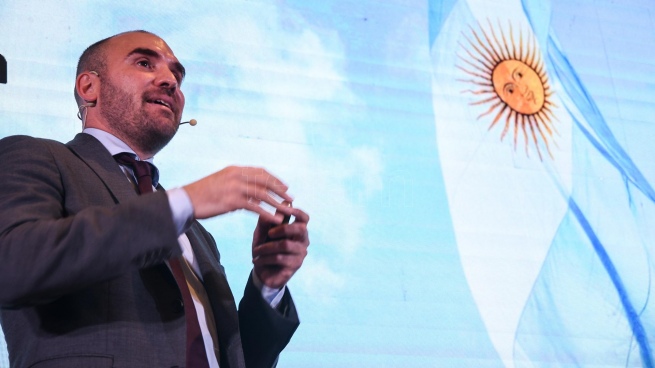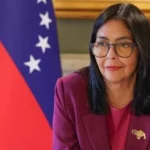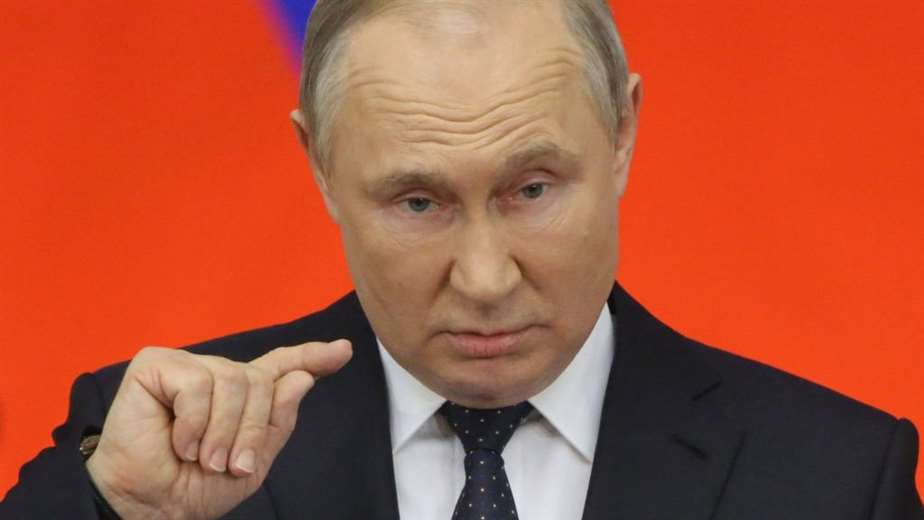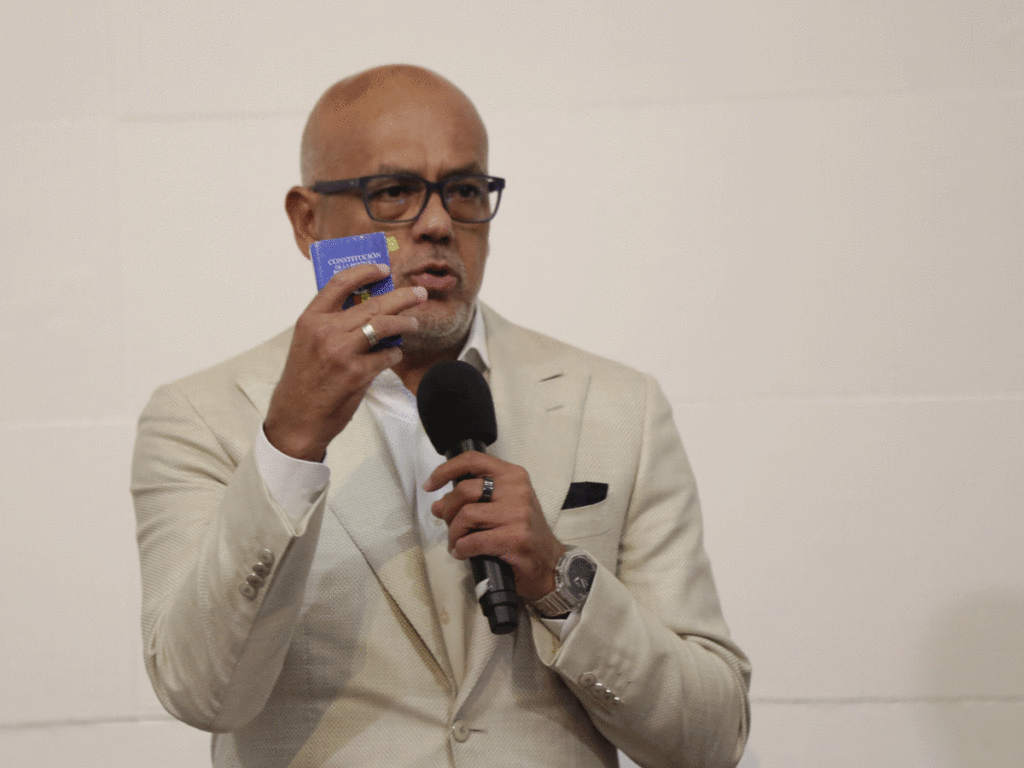The Minister of Economy, Martín Guzmán, assured that the activity is “growing strongly in 2022 and can continue to do so in 2023”, but clarified that “for this to happen, we must have a certain rationality and manage the restrictions and make an economic policy according to “.
Participating in the lunch organized by the Inter-American Council of Commerce and Production (Cicyp) at the Alvear Palace Hotel, in the city of Buenos Aires, the head of the Palacio de Hacienda presented for 40 minutes the main guidelines of the Government’s economic management, before an auditorium made up of nearly two hundred businessmen and managers of leading firms.
“Argentina has been experiencing a very strong economic recovery,” he said, recalling that last year “GDP increased by 10.3%. Unemployment fell to 7% and investment grew 33%,” said Guzmán in the first section of his presentation.
“No one projected that the economic recovery would be so fast in Argentina and we did it in just one year thanks to different factors, including the policies that we deployed during the pandemic that prevented the destruction of the productive fabric,” the minister stressed.

Then, one by one, he specified the points that, in his opinion, are essential to sustain the path of growth: administration of the external restriction until the available reserves increase, tranquility for the economy through a program “that is credible” and ” rational”, decrease in monetary assistance from the BCRA to the Treasury, increase in savings in local currency, growth in wages and investment.
In addition, Guzmán considered that Argentina has “a historic opportunity” in terms of energy development in a world that changed after the war between Russia and Ukraine and where energy and food became the main concerns of the countries.

Despite the good economic results, the minister emphasized the objective of lowering inflation, which he described as the “main issue of concern that the Argentine economy has had for several years, but today it is also a global problem.” .
“Inflation has an internal and an external component. The main problem in the world today is inflation,” the official said.
Guzmán emphasized that “the key to any program to contain inflation is to change expectations and have an economic program that is credible. We propose the commitment from the national government to continue along this line”.
“No one projected that the economic recovery would be so fast in Argentina and we did it in just one year thanks to different factors, including the policies that we deployed during the pandemic that prevented the destruction of the productive fabric”Martin Guzman
In addition, he considered it necessary to obtain foreign currency to overcome the external restriction (shortage of dollars) that prevents financing economic growth.
“To strengthen stability we need the Central Bank to have more reserves, because that helps anchor expectations. Economic growth has to be consistent with the goal of accumulation of reserves that we propose” and the exchange rate “has to move in a manner consistent with the stability of the balance of payments,” Guzmán assured.

“If we don’t have foreign currency we can’t grow, if we want the economy to grow, exports have to grow, it’s an arithmetic necessity,” he added.
Underlining the importance of sustaining the economic course, the official assessed that “historically, Argentina has had a hard time acting programmatically. There is a tendency to act short-term. It is a pattern that is not common in the world. There is volatility of the course that generates short-term behavior. We seek to act firmly in a programmatic way” to connect medium and long terms.
Funes de Rioja and Eurnekian agreed on the need to strengthen the path of development
The businessmen grouped in the Inter-American Council of Commerce and Production (Cicyp) supported the management of the Minister of Economy, Martín Guzmán, and promised to continue investing to consolidate the path of development in a framework of predictability.
“We remain convinced that we must work on the path of certainty, with predictable goals, with a great conviction to strengthen the path of development,” said the president of Cicyp, Daniel Funes de Rioja.
The also head of the Argentine Industrial Union assured that they will accompany “the path of inclusive and sustainable development.”
Along the same lines, the president of Corporación América and vice president of Cicyp, Eduardo Eurnekian, expressed his commitment to “continue investing” in the context of optimism raised by Minister Guzmán.
Eurnekian closed the event with a toast at the main table, in which he stated that “optimism is the engine of entrepreneurs” to maintain their investment plans.
For his part, the president of the Argentine Chamber of Construction (Camarco), Gustavo Weiss, assured Télam that the sector “continues to grow” uninterruptedly since June 2020, with a plant of “400,000 workers” that presents difficulties to its expansion due to the difficulty in “getting labor”.
Another of the representatives of the business sector present at the meeting, the director of the Celulosa firm, José Urtubey, indicated that “the government’s main challenge is for the ruling coalition to work harmoniously.”
“It is not a matter of proper names, but of a concept of participatory work. The issue is how the macroeconomy is resolved and balanced,” said Urtubey.
For his part, the president of Grupo Motta, Héctor Motta, a leading firm in the poultry sector, remarked that the company “will invest US$ 50 million this year to open two new plants.”
Participating in the event that took place at the Hotel Alvear, among other businessmen and officials, were the Chairman of Pan American Energy Group, Alejandro Bulgheroni; the vice president of Cabrales SA, Martín Cabrales; the industrial leader Cristiano Rattazzi, the executive director of the UIA, Diego Coatz, and the Argentine ambassador to Brazil, Daniel Scioli, among others.
In this sense, he mentioned the development of the energy sector as one of the axes to transform the national and regional productive structure.
“Argentina and the entire region, which must work together, have a great opportunity to accelerate the development of the energy sector. This would be transformational for our economy because it transforms what is productive by having other costs and increasing the competitiveness of the industry and sectors that today generate a lot of employment but they also demand foreign exchange,” explained the minister.
Along these lines, Guzmán referred to the challenge of “completing domestic capital with foreign capital” and “adapting certain regulations to allow a significant scaling up of investment,” in particular an “adaptation of capital regulations for the energy sector that going to channel into a presidential decree”.

To sustain growth and generate more inclusion, Guzmán considered “it is essential that the purchasing power of wages grow, that it continue to recover steadily.
Along these lines, the official indicated that “the price and income policies that accompany those of economic programming go towards that objective.”
In another section of his presentation at the Alvear Palace Hotel in Buenos Aires, the minister maintained that “transfers from the Central Bank to the Treasury must be converging to zero”, after which he warned that this “cannot be done all at once because it would not be effective to reduce inflation. It already happened in 2018 and it was not successful,” he recalled.
Asked about the level of interest rates, Guzmán said that “there is a path to normalize the rate structure to strengthen exchange stability and discourage the dollarization of portfolios. That is the line on which action will continue.”


















